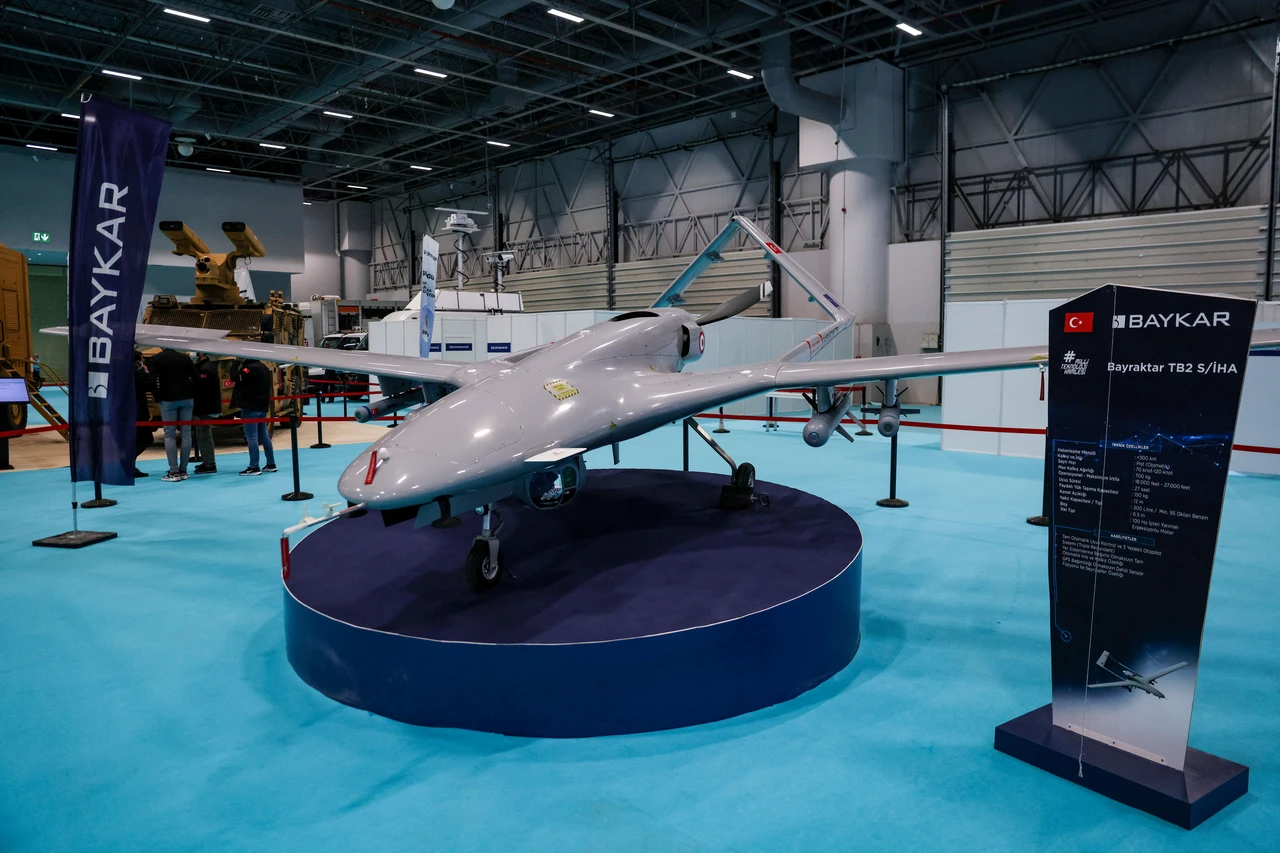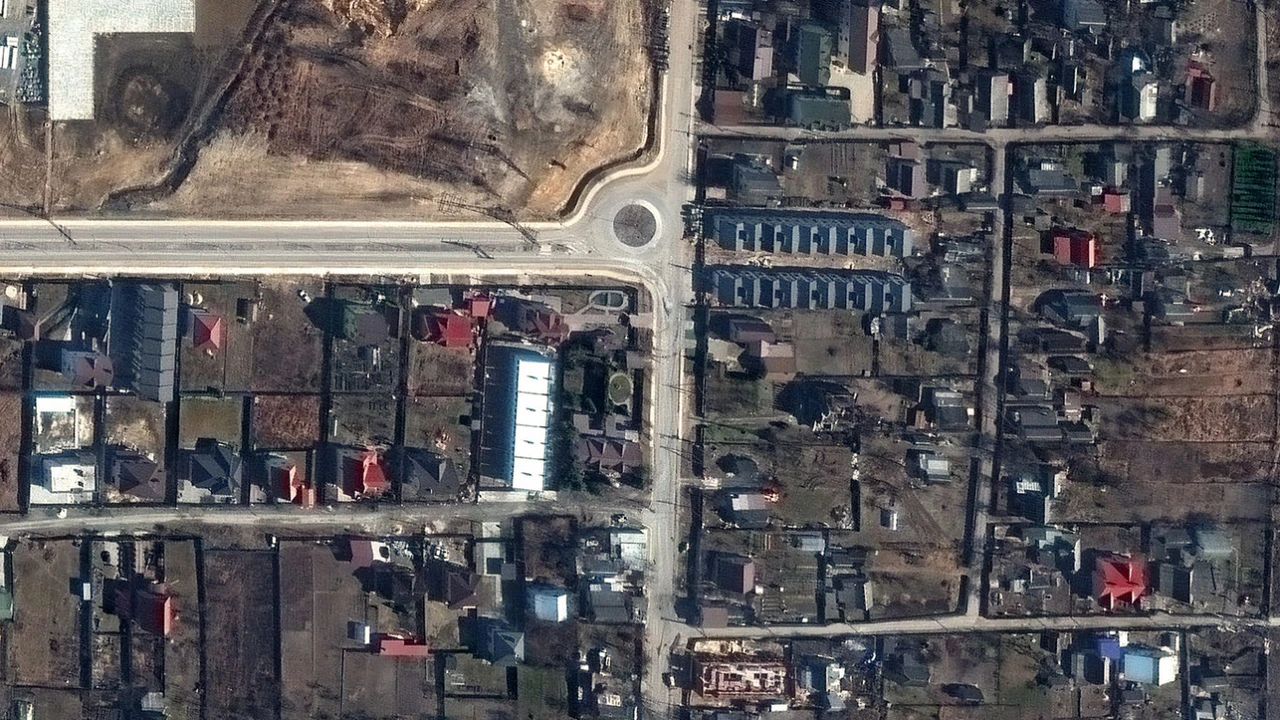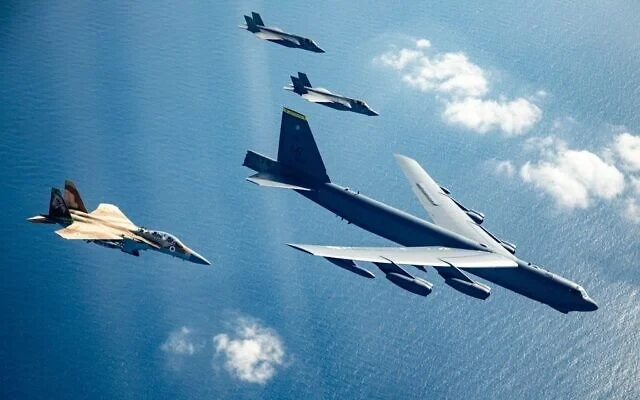Drones become new battleground in Türkiye’s fight with terror group PKK
 TB2 drone of Turkish drone-maker Baykar is seen at a stand during the first day of SAHA EXPO Defence & Aerospace Exhibition in Istanbul, Türkiye, November 10, 2021. (Reuters Photo)
TB2 drone of Turkish drone-maker Baykar is seen at a stand during the first day of SAHA EXPO Defence & Aerospace Exhibition in Istanbul, Türkiye, November 10, 2021. (Reuters Photo)
The long-standing conflict between Türkiye and the PKK has entered a new phase as unmanned aerial vehicles emerge as a critical component of warfare in northern Iraq. Recent reports indicate that the PKK, designated as a terrorist organization by Türkiye, the EU, and the US, has significantly ramped up its use of first-person view (FPV) drones in response to Türkiye’s military advances.
Turkish military operations have successfully pushed PKK fighters away from the Turkish border over the past two years, leveraging advanced surveillance and air superiority capabilities.
According to sources familiar with the situation, the PKK has established drone-manufacturing workshops in areas between Sulaymaniyah and Qandil in northern Iraq. An Iraqi arms dealer, speaking anonymously to Middle East Eye (MEE), revealed, “These preparations have been underway for approximately a year.”
The PKK’s drone initiative reportedly involves a complex international supply chain, with materials and technology sourced from various countries including Ukraine, China, and Iran. The group is said to be working on enhancing existing drones, developing custom bodies and engines, and improving key capabilities such as range and precision.
In June alone, the PKK conducted at least 17 FPV drone attacks against the Turkish army, although Turkish security sources claim these resulted in only minor material damage. In response, Türkiye has deployed countermeasures, including the Korkut anti-drone system, footage of which was released by the Turkish defense ministry on July 4.
A Turkish source told MEE that the PKK is developing specialized ammunition and payloads for FPV drones, with tactical targets including ammunition depots and armored vehicles. The source added that the group might have access to munitions developed by Ukraine and is receiving software support from Iran.
While FPV drones present new challenges, a Turkish defense industry expert noted that they remain vulnerable to electronic warfare, despite recent technological advancements making them harder to detect and jam. The expert also revealed that since 2018, the PKK has been developing small fixed-wing drones capable of autonomous flight and detonation.
As both sides continue to adapt their strategies, the use of drones is reshaping the dynamics of the conflict in northern Iraq. This shift highlights the increasing role of advanced technologies in asymmetric warfare, presenting new challenges for conventional military forces and potentially altering the nature of regional conflicts.



